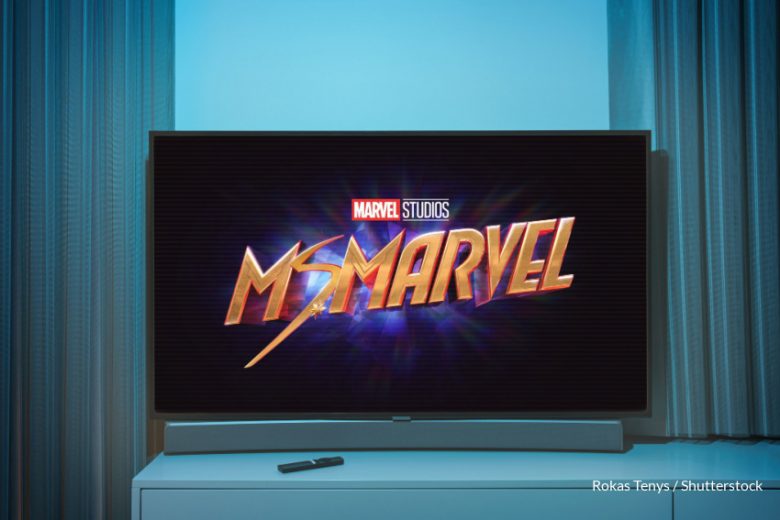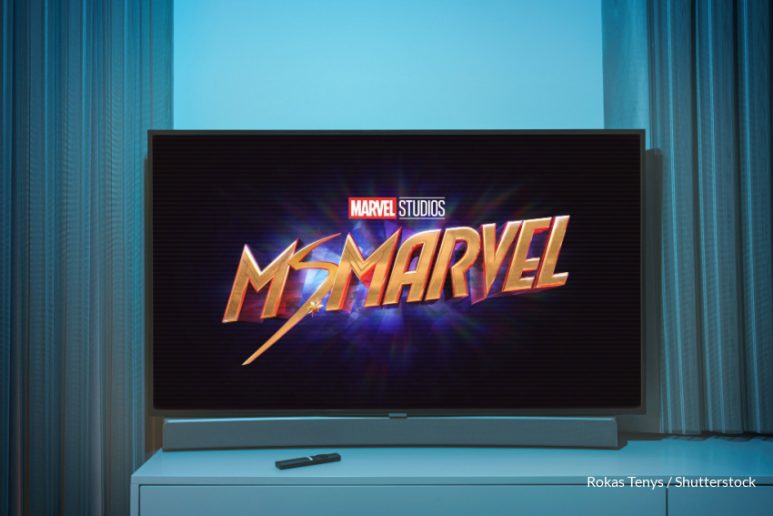By Angelo Boccato
In the two decades since the Twin Towers attack, the portrayal of Muslim characters and communities in popular culture has been tainted with incredible amounts of stereotypes, bigotry, overall toxicity and Islamophobia. These are especially seen in series like 24 and Homeland. The monologue of Sheriff Hassan, played by British actor Rahul Kohli, in the Netflix horror show Midnight Mass, captures with great detail the experience of US Muslims since 9/11.

More recent shows, such as BBC drama Bodyguard, starring Richard Madden have also been criticised for perpetuating negative portrayals of Muslims. According to the 2018 quarterly report by the Muslim Council’s Centre for Media Monitoring, TV Drama such as the Bodyguard, is a medium which ‘has the highest percentage (16%) of “Misleading” clips and overall is “Very Biased” in its content and scripting’.
In recent years, however, a different trend has also started to expand towards a more positive representation of Muslim characters on the screen.
‘I think it’s very important to see more nuanced and diverse representations of Muslims in popular culture in general. These representations should speak to the heterogeneity of the Muslim world,’ says Hosein.
Actors like Riz Ahmed and Mahershala Ali have been central to this change. Both are celebrated by their stellar personal success for The Long Goodbye and Moonlight and the fact that they have been the first two Muslim actors to win an Academy Award.
More recently two very acclaimed shows that are part of this change of perspective are We are Lady Parts and Ms. Marvel.
We Are Lady Parts which has been written, produced and directed by Nida Manzoor and has been broadcasted on Channel 4 focuses on the fictional eponymous punk band, based somewhere in East London. The band members are Muslim women who challenge their general stereotypical representation, and at the same time they highlight the diversity within Muslim women and communities. Amina, played by Singaporean actress and song-writer Anjana Vasan, is a microbiology Ph.D. student with a passion for playing guitar, which she keeps to herself. Her world is turned upside down when she meets the Lady Parts and becomes their lead guitarist. The comedy show includes bittersweet moments, LGBTQ themes and, overall, the struggle for being heard and represented.
Ms. Marvel is part of the Marvel Cinematic Universe Phase 4 and focuses on the titular superheroine, alter ego of Kamala Khan, played by newcomer Pakistani-born Canadian actress Iman Vellani. Vellani is set to appear in the MCU Captain Marvel sequel, The Marvels, alongside Teyonah Parris and Brie Larson. Among the show’s creators Ms. Marvel features Pakistani-American editor Sana Amanat.
According to Safiyya Hosein, adjunct lecturer at Toronto Metropolitan University, there have been other Muslim superheros before Ms Marvel, however, they were not as groundbreaking as she has been.
‘I would say that many of these characters were much less nuanced than Kamala. For instance, Sooraya Qadir (Dust, a member of the New X-Men) was a textbook orientalist character considering her powers and costume. Simon Baz (a Green Lantern from the New 52 DC Comics storylines) was quite interesting but he was tokenized and under-utilized like Josiah X. I’ve described Monet (a member of Generation X and the X Men) as shoe-horned in the past. A lot of these characters are peripheral because they didn’t have an ongoing title series like Kamala so we can’t see the more in-depth sides to them,” Hosein tells Media Diversity Institute.
An element of orientalism that was criticised in the series was the retconned origin of Kamala as a djinn.
‘I wish the djinn origin wasn’t there just because of its orientalist implications (Muslims don’t always need to be connected to djinns in fictional media). The final episode alluded to her being a mutant and I wish the show had just gone with that from the start because the djinn element just “othered” her. With that said, I found the TV series to be amazing! I like how it harmonised with the comic series which albeit was quite different. There was a stand-alone issue connecting Kamala’s great-grandmother, Aisha, to Kamala in a complicated way. And that issue also showed her great-grandparents’ migration from India to Pakistan during the Indo-Pak Partition. Bisha K. Ali took that plotline and expanded on it. What we say was a touching Partition story that ended up grounding Kamala more in South Asian Muslim identity with poignant matrilineal and muhajir (immigrant) themes. I honestly hope that this series wins a prestigious award,’ Hosein continues.
Another important element of the show, that can also be seen in We are Lady Parts is the diversity in the representation of Muslim communities, which tend to be represented as monolithically Middle Eastern, something that further plays into stereotypes and misconceptions.
‘Ms.Marvel broke the Muslim = Middle Eastern stereotype which is a very poor and racist stereotype that must be challenged. Ms.Marvel does a good job of giving representation to many other Muslim cultures. Her best friend, Nakia, is Turkish. Her sister-in-law is an African-American convert. Her sidekick, Amulet, is Lebanese-American. All are nuanced representations given the time that they have in the series. In terms of the South Asian Muslim elements in the comic, I can’t complain. You see so much spotlight on South Asian fashion and culture and the language Urdu is seamlessly a part of the series. There have been multiple times that Kamala has gone to Pakistan. It’s quite beautiful!’ Hosein says.
Hosein continues by stressing the importance of comics in the representation of marginalised groups that were not well represented well in other types of media. At the same time she mentions that comics also reinforce negative stereotypes.
‘It’s hard to say if [comics] can lead the way for other media and we should note that superhero comics are only one genre in comics. Marvel Studios and Disney seem committed to diverse representations so I do believe that marginalised audiences will see more of themselves represented which is a good thing. In terms of good practices in the comics arena, I guess I would have the same advice for any type of media which is to acquire more diverse talent behind the scenes that can give voice to new representations,’ concludes Hosein.
While a lot of work still has to be done in the representation arena for Muslims on screen, these shows, alongside others like the Norwegian teen series Skam, the US series Ramy and Mo represent a step in the right direction.
Photo Credits: Rokas Tenys / Shutterstock

